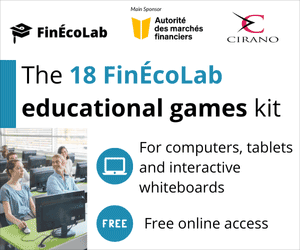Durham College (DC) Advanced Law Enforcement and Investigations students are using an innovative and interactive way to practice their crisis de-escalation techniques thanks to a new virtual reality (VR) scenario program.
The program was designed to deepen students' communications skills by providing more real-time opportunities to practice the difficult scenarios they would face in the profession, said Program Coordinator Yvonne Armstrong, who was inspired to incorporate the new VR tools by both her own position on the Toronto Police Services' Mental Health and Addictions Advisory Panel, as well as by recommendations from the Program Advisory Committee.
Christopher Patton is one of the 23 Advanced Law students who had the opportunity to try out the system first. He's now gone through dozens of scenarios, which last five to 10 minutes each and deal with everything from suicidal people to citizens with dementia to domestic violence. Patton says that one of his most memorable recent scenarios was a traffic stop where he practiced pulling an individual over and talking them down and making sure everything was under control.
"When you're in it, it feels real with the noises and traffic going by, you're looking at everything and there's a lot going on," he said. Already a graduate of the Police Foundations program, Patton says he's de-escalated similar situations on placement so appreciates how valuable the training can be.
Patton also gains a lot by watching his classmates go through their scenarios (students interacting with the scenario wear VR headsets but the rest of the class can follow along by watching a screen projection). The space is set in a 10 x 10 metre perimeter with cameras 360 degrees around the user, so users can look all around when using the headset.
"You get to see a different perspective when other people answer. Everyone approaches scenes a little differently, so it shows you that difference," says Patton.
Armstrong unfolds the scenario in real time on the headset, advancing the scene based on students' responses and even starting over if they get stuck, which is part of the benefit. "It's a safe environment it allows for the student in the scenario to stop, start and reset, and for students watching to also learn from the feedback," said Armstrong. She says it's a great opportunity to expand students' communications practice, an essential employability skill.
"I don't expect perfect responses, but I always say, let's talk, let's think about the questions you should ask,'" she said, noting that while some students may have a bit of experience, others have never done this sort of exercise. "For them, it's really a shock, and in real life, you can't stand and freeze. Hopefully, this provides some skills and situations."
Patton agrees: "This is your time to make mistakes, where you're allowed to mess up, versus on the job."













